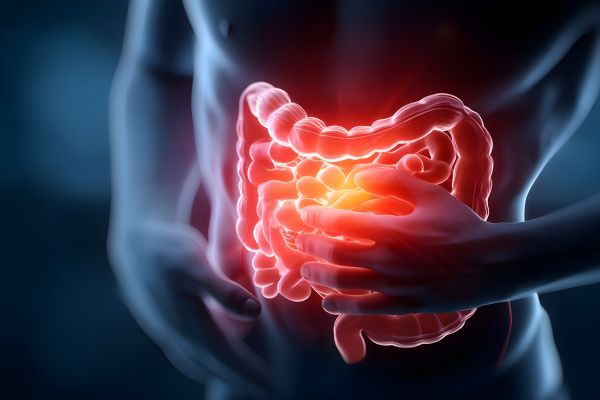
From the Desk of Carolyn Dean MD ND
In order to understand how to support the interconnectedness of the adrenals, thyroid, ovaries, and pancreas – what I call “The Four Hormones of the Apocalypse”, we have to look at them individually to understand them better.
NOTE: We don’t “treat” them individually, just look at them individually!
You can visit my previous blog to understand how to better care for the adrenals and adrenal fatigue, the real illness that is often dismissed as a myth.
Let’s explore another complex hormone system, the thyroid. And yes, I’ve written blogs and books that have covered this topic and you can even find my videos about it on YouTube and on my website.
What Dr. Google or an MD might say about the thyroid:
The thyroid gland produces the hormones (T3) triiodothyronine and (T4) thyroxine using iodine. These hormones regulate metabolism, blood pressure and heart rate and influence the digestive, nervous, and reproductive systems. The thyroid gland also produces calcitonin which helps process calcium.
According to Dr. Google, a malfunctioning thyroid can be either over active or under active. If your thyroid produces too much hormone, that can lead to hyperthyroidism with symptoms such as:
- Fast or irregular heartbeat
- Increased sweating, or clammy skin
- Anxiety, nervousness, irritability
- Frequent bowel movements
- Irregular menstrual cycle.
- Sleep irregularities or insomnia
- Unexplained weight loss
- Tremors, often in the hands
- Goiter (enlarged thyroid)
At the other end of the thyroid hormone producing spectrum is the under active thyroid with Hypothyroidism. Symptoms may include:
- Fatigue and tiredness
- Unexplained weight gain
- Constipation
- Puffy face
- Dry skin and hair
- Sensitive to cold
- Slower heart rate
- Depression
- Memory problems
- Heavier menstrual cycles
Mainstream explanations often point to Hashimoto’s disease (for underactive thyroid) or Graves’ disease (for overactive thyroid)—both autoimmune conditions where the immune system attacks the thyroid. However conventional medicine doesn’t explore the cause of these autoimmune diseases. The standard approach is to manage hormone levels with lifelong medication rather than correcting the underlying imbalance.
Medical tests and treatments
If an issue with your thyroid is suspected, you’ll be sent for a blood test to measure thyroid function.
Under active thyroid: You’ll typically receive a prescription for a synthetic hormone replacement.
Naturopathic approach: You might have the option of a natural, desiccated thyroid which is a dried and powdered animal thyroid prepared for medicinal use.
Overactive thyroid (Graves’ Disease): Typical treatment is more intensive. You may be described “anti-thyroid” drugs which interfere with the thyroid gland making too much hormone. While waiting for that to work, you might be given beta-blocker, drugs that are meant to deal with they symptoms of fast heartbeat, anxiety and tremors.
Or you will be offered a dose of radioactive iodine, which will destroy thyroid cells, stopping hormone production. Or surgery to cut away parts of the gland to reduce hormone production.
But nobody is asking why the thyroid is over- or under-producing hormones or finding a way to correct its function. Instead, they’re giving patients a lifelong diagnosis and a lifelong prescription.
What I say about the thyroid
In my blogs and books I’ve listed 80 different symptoms that can be linked to an under active thyroid. Of course I’ve spent decades asking why the thyroid doesn’t work properly, and how the thyroid interconnects with other hormones.
What I’ve researched and observed is that an under active thyroid is a trigger for adrenal fatigue and both conditions respond to optimal amounts of picometer, stabilized ionic minerals, starting with magnesium.
Causes of low thyroid
I’ve identified that a major cause of low thyroid function could be that an overabundance of yeast toxins that are blocking thyroid receptor sites so that the hormone can’t do it’s job. Typical blood tests may show “normal” thyroid hormones, but if they can’t get inside the cells, the result can be up to 80 symptoms of hypothyroidism.
Another major cause of thyroid imbalance is mineral deficiency and correcting this deficiency will begin to bring your thyroid and adrenals into balance. The nine minerals necessary for the creation, conversion, activation, and transport of thyroid hormones include: iodine, selenium, zinc, molybdenum, boron, copper, chromium, manganese, and magnesium.
With widespread magnesium deficiency, it’s safe to assume most people are also lacking in these other crucial minerals, putting them at risk for poor thyroid function.
Over the past five decades I’ve noticed that many women are diagnosed with hypothyroidism in late pregnancy. Their thyroid is depleted while doing the extra work of growing a new human. Vital minerals are drained and allopathic doctors are not ensuring that pregnant women are replenishing these minerals. Frankly, they’re not ensuring that any of their patients are replenishing minerals. I think a common result is that women’s thyroid and adrenals are depleted by pregnancy resulting in the vast number of cases of early menopause for women in their 40s and 50s.
What you can do
MultiMinerals – Supplementing with a highly absorbed, picometer multiminerals that includes the nine necessary minerals for thyroid health can “wake up” your thyroid and improve your metabolism. What people often report is that they feel a bit more wired or energized as the multiminerals begin supporting thyroid function. Please check with your doctor about reducing or stopping the medication you’ve been given.
Some patients have been treated with high doses of iodine, meant to shock the thyroid into action. This has resulted in many people developing a sensitivity to iodine an unable to tolerate it at all. Iodine is an important mineral to the thyroid, but it’s meant to work in conjunction with the 8 other crucial minerals.
Magnesium – should be in the picometer, stabilized ion form. And the dose should be around 600mg per day. This liquid magnesium is diluted in a liter of sea-salted water and sipped throughout the day. Magnesium is necessary for the proper processing of 80% of known metabolic functions.
Vitamin D – is a prohormone, which regulates the production of hormones as well aiding the absorption of calcium to protect our bones. Most vitamin D blood tests show that we may need about 5,000iu a day along with a dose of vitamin K2. Remember, magnesium is necessary for the activation of vitamin D.
Vitamin B Complex – a methylated and food-based B complex formula along with two sulfur-based amino acids provides several vitamins that are necessary for adrenal support and detoxification as well as all the critical methylation functions of the body.
The above formulas make up my daily protocol, and I feel better now in my mid 70s than I did in my 30s!
If you’d like to build your own protocol, our Customer Experience Team would be happy to guide you through it and help tailor what’s best for you.
Carolyn Dean MD ND
The Doctor of the Future



